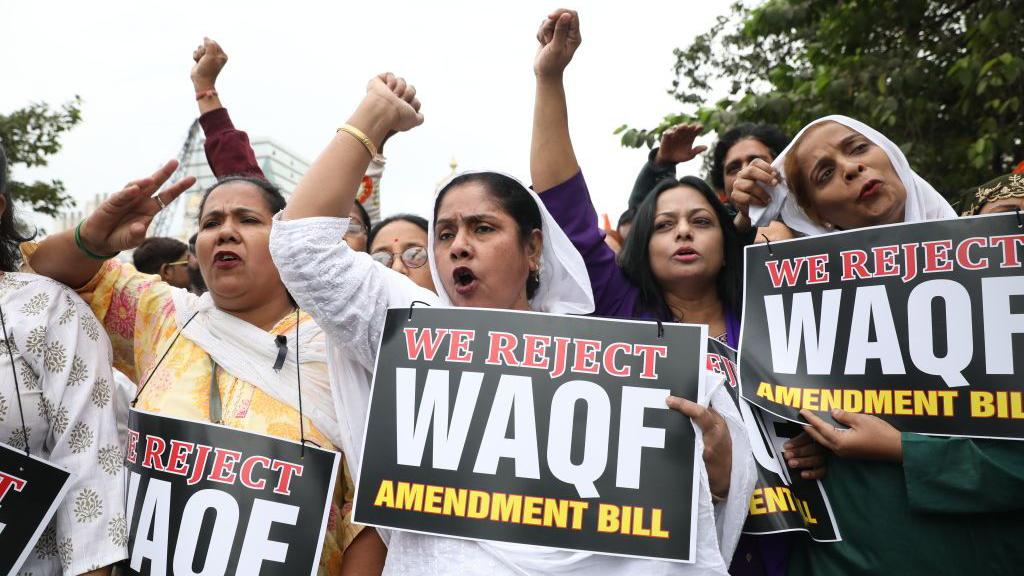Introduction
The Waqf (Amendment) Act, 2025, has ignited significant legal and political discourse in India. Passed by Parliament in early April 2025, the Act introduces substantial changes to the management of Waqf properties—endowments made for religious or charitable purposes under Islamic law. The amendments have prompted multiple petitions in the Supreme Court challenging their constitutional validity. This article delves into the key aspects of the Act, the ensuing legal challenges, and the broader implications for religious and property rights in India.
Understanding Waqf and the Need for Amendment
Waqf refers to a permanent dedication of property for religious, pious, or charitable purposes recognized under Muslim law. The Waqf Act of 1995 laid the framework for administering Waqf properties through State Waqf Boards and the Central Waqf Council.
Over time, concerns surfaced regarding mismanagement, lack of transparency, and widespread encroachment of Waqf properties. In response, the government introduced the Waqf (Amendment) Bill, 2024, aiming to bring more transparency, accountability, and efficiency to the management of these religious endowments.
Key Provisions of the Waqf (Amendment) Act, 2025
The 2025 amendment introduces several notable changes, including:
1. Inclusion of Non-Muslim Members
The amendment allows the inclusion of non-Muslim members in the Central Waqf Council. This move is intended to promote diversity and improve oversight and transparency in Waqf property administration.
2. Enhanced Government Oversight
The government now has increased powers to oversee and regulate Waqf properties. This includes authority to resolve property ownership disputes and scrutinize the functioning of Waqf Boards.
3. Verification of Ownership Documents
All Waqf properties must have ownership documents verified. This step is aimed at preventing illegal encroachments and ensuring proper documentation and record-keeping.
4. Changes in Election Processes
The Act introduces changes in the election procedures for Waqf Boards, including updated eligibility criteria for members and standardized procedures to ensure fair governance.
Legal Challenges in the Supreme Court
The Waqf (Amendment) Act, 2025, has been met with strong resistance and is currently under judicial scrutiny in the Supreme Court.
1. Violation of Religious Rights
Petitioners argue that allowing non-Muslims in the Waqf Boards violates Article 26 of the Indian Constitution, which gives religious denominations the right to manage their own affairs.
2. Encroachment on Property Rights
Critics claim that the government’s expanded powers amount to interference in the property rights of the Muslim community, undermining the autonomy of religious institutions.
3. Lack of Stakeholder Consultation
Many argue that the Act was passed without sufficient dialogue with key stakeholders, including Muslim religious leaders, scholars, and community organizations.
The case is being heard by a constitutional bench led by Chief Justice Sanjiv Khanna. The Supreme Court’s ruling will set a precedent for religious property governance and minority rights in India.
Political and Social Reactions
Support from BJP-Ruled States
States like Madhya Pradesh and Assam have endorsed the Act, highlighting the need for reforms to curb corruption and ensure transparency in managing Waqf properties.
Opposition from Congress and AIMIM
Congress and All India Majlis-e-Ittehadul Muslimeen (AIMIM) have opposed the amendments and filed petitions in court, citing infringement of religious rights and community autonomy.
Concerns from Muslim Organizations
Several Muslim organizations have raised alarms that the Act could erode the religious and administrative independence of the Waqf Boards and pave the way for state overreach.
Implications for Religious and Property Rights
The Supreme Court’s verdict will significantly influence the relationship between the state and religious institutions. If the Act is upheld:
It may empower the government to regulate religious endowments across communities.
It may create legal precedence for inclusion and diversity in religious property councils.
It could spark similar reforms in other religious trusts and boards.
On the other hand, if struck down:
It would reaffirm the right of religious communities to manage their own affairs without state interference.
It might lead to more structured consultations before future legislative changes affecting religious institutions.
Conclusion
The Waqf (Amendment) Act, 2025, represents a pivotal moment in the governance of religious endowments in India. As the Supreme Court deliberates on the Act’s constitutionality, the outcome will not only shape the future of Waqf property management but also impact the broader narrative of religious freedom, minority rights, and constitutional law in India.
FAQs
Q1: What is the Waqf (Amendment) Act, 2025?
A: The Act introduces reforms in Waqf property management, such as allowing non-Muslim members in Waqf Boards and enhancing government oversight.
Q2: Why is the Act being challenged in the Supreme Court?
A: Petitioners argue that it violates constitutional rights related to religious freedom and property ownership.
Q3: What are the potential implications of the Supreme Court’s decision?
A: The verdict could redefine the balance between state intervention and religious autonomy in India.
Q4: Who are the key stakeholders in this issue?
A: The central government, state governments, judiciary, political parties, and Muslim organizations.
Q5: How does the Act affect the management of Waqf properties?
A: It aims to improve transparency and accountability but has raised concerns about overreach and interference.




























